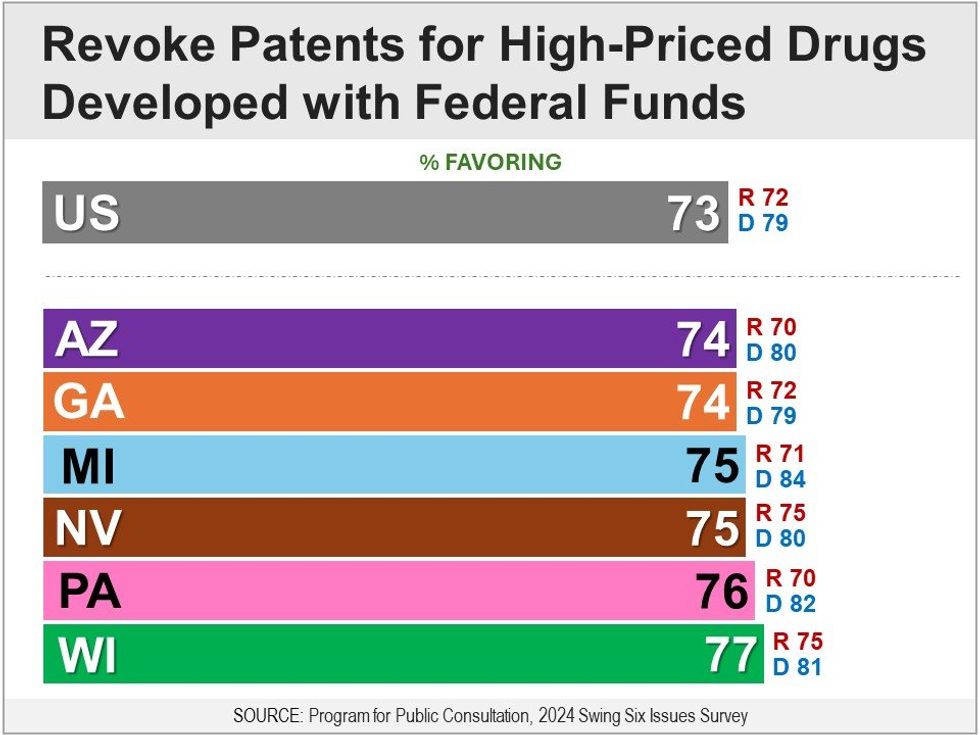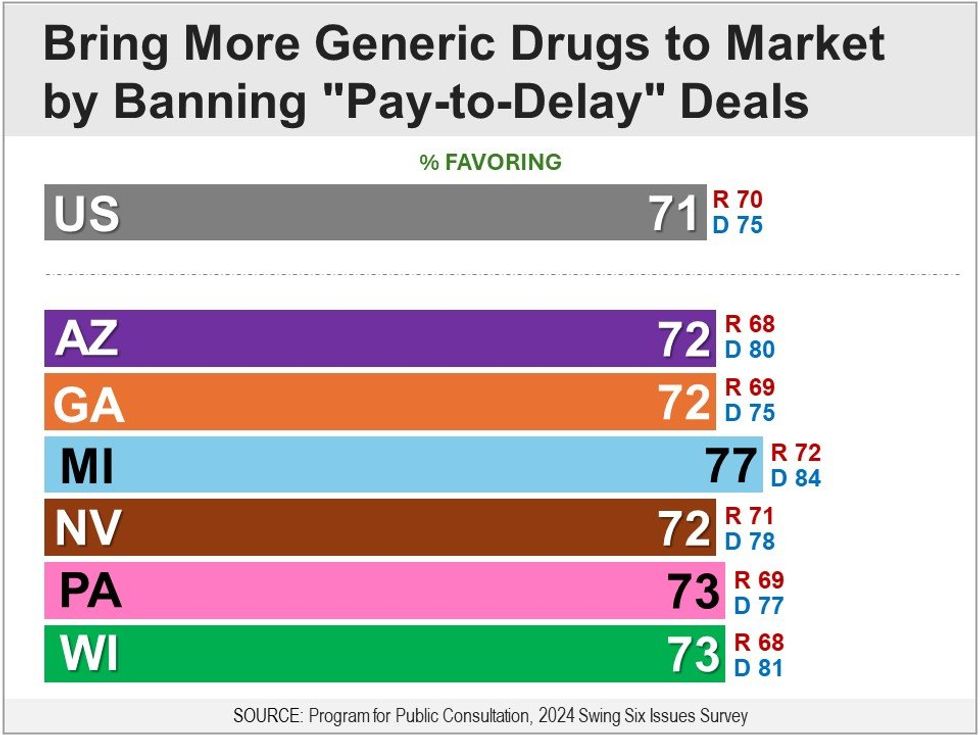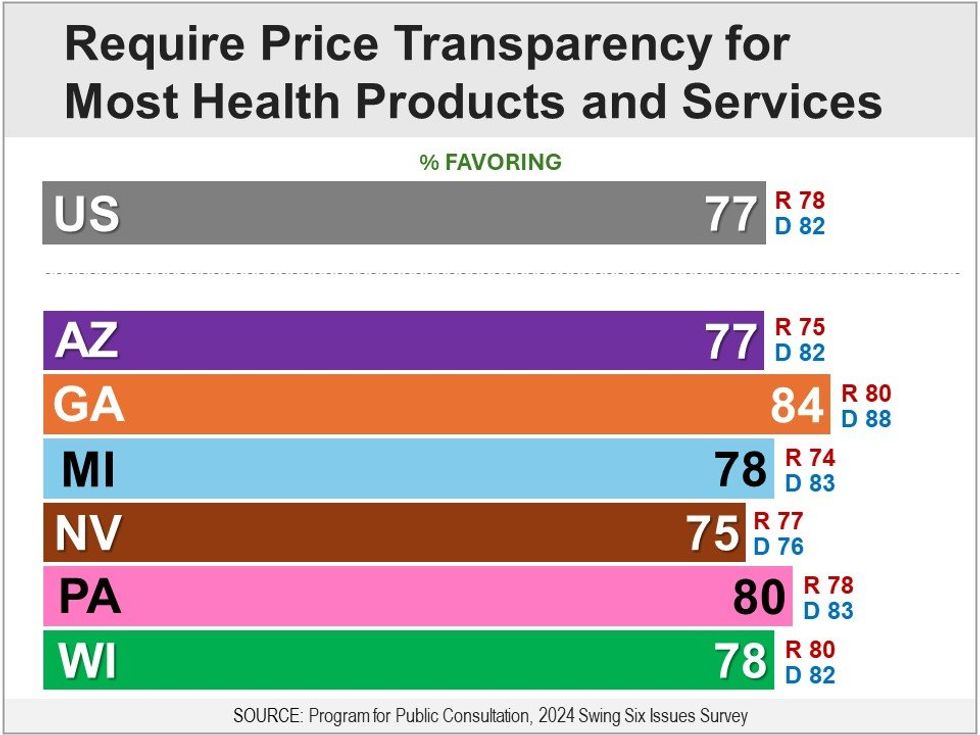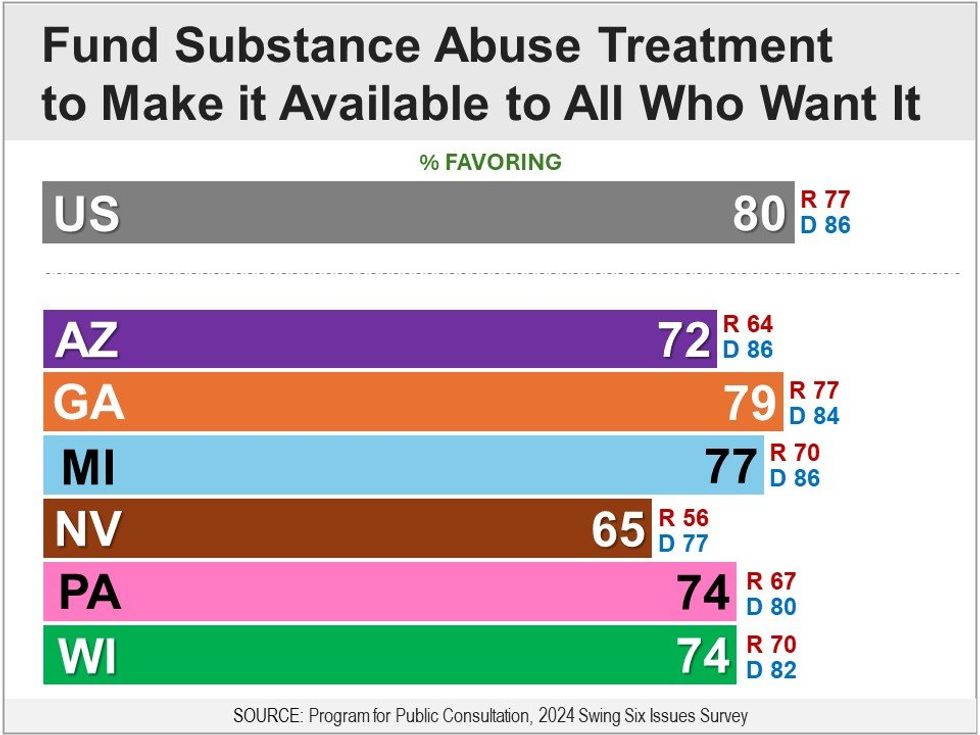As the price of health care continues to rise faster than wages, a new public consultation survey by the Program for Public Consultation finds bipartisan majorities of Americans in six swing states, as well as nationally, support major proposals for lowering health care costs.
This survey is part of the “Swing Six Issue Surveys” series being conducted in the run-up to the November election in Arizona, Georgia, Michigan, Nevada, Pennsylvania and Wisconsin on major policy issues. Unlike traditional polls, respondents in a public consultation survey go through an online “policymaking simulation” in which they are provided briefings and arguments for and against each policy. Content is reviewed by experts on different sides to ensure accuracy and balance.
“Even with the airwaves of the swing states filled with divisive messages, when people there focused on possible solutions for lowering health care costs, we found tremendous bipartisan common ground,” said Steven Kull, director of the Program for Public Consultation.
This survey was fielded May 23-July 8 with 6,854 adults participating, including 3,649 in Arizona, Georgia, Michigan, Nevada, Pennsylvania and Wisconsin (approximately 600 in each), and 3,205 nationally. PPC is a program within the University of Maryland’s School of Public Policy.
Capping drug prices
The federal government capping the price of all drugs to what is charged in other developed countries is favored by large majorities in every swing state (77 percent to 81 percent), including majorities of Democrats (84 percent to 87 percent) and Republicans (72 percent to 82 percent). Nationally, a large bipartisan majority (78 percent) is also in favor.
In the advance briefing, respondents were informed that drugs in the United States generally cost twice as much as in other developed countries and that this proposal would result in fewer new drugs being developed, per a Congressional Budget Office study.
Making higher ACA subsidies permanent
Making permanent the pandemic-era law that temporarily increased Affordable Care Act subsidies for lower- and middle-income households is favored by nearly two-thirds in every swing state (62 percent to 68 percent), including majorities of Democrats (71 percent to 78 percent) and Republicans (55 percent to 62 percent). Nationally, a bipartisan majority of 67 percent is in favor.
Subsidies are scheduled to return to pre-pandemic levels in 2026.
Revoking patents for unaffordable drugs developed with federal aid
Allowing the executive branch to revoke patents for drugs developed with federal aid, which are unaffordable for most who need them, is favored in every swing state (74 percent to 77 percent), including Democrats (79 percent to 84 percent) and Republicans (70 percent to 75 percent), as well as nationally (73 percent).
Prohibiting deals that delay the release of generic drugs
Prohibiting “pay-to-delay” — in which brand-name drug companies preserve their ability to charge high prices by paying generic drug companies to delay bringing their generic version to market — is favored by majorities in every swing state (72 percent to 77 percent), including Democrats (75 percent to 84 percent) and Republicans (68 percent to 72 percent), as well as nationally (71 percent).
Requiring price transparency for health care costs
Price transparency — requiring that health and insurance providers make prices publicly available as a means of promoting competition and lowering costs — has been enacted by both the Trump and Biden administrations through executive orders.
Making price transparency requirements permanent through legislation is favored by more than three-quarters in every swing state (75 percent to 84 percent), including Democrats (82 percent to 88 percent) and Republicans (74 percent to 80 percent), as well as nationally (77 percent).
Funding substance abuse treatment
Providing $13 billion in additional federal funding to help make treatment for substance use disorder low-cost or free to nearly everyone who needs and wants it is favored by majorities in every swing state (65 percent to 79 percent), including Democrats (77 percent to 86 percent) and Republicans (56 percent to 77 percent). Nationally, a bipartisan majority (80 percent) is in favor.
























 From left to right: Gabriel Cardona-Fox, Bud Branch, Joe Concienne
From left to right: Gabriel Cardona-Fox, Bud Branch, Joe Concienne 